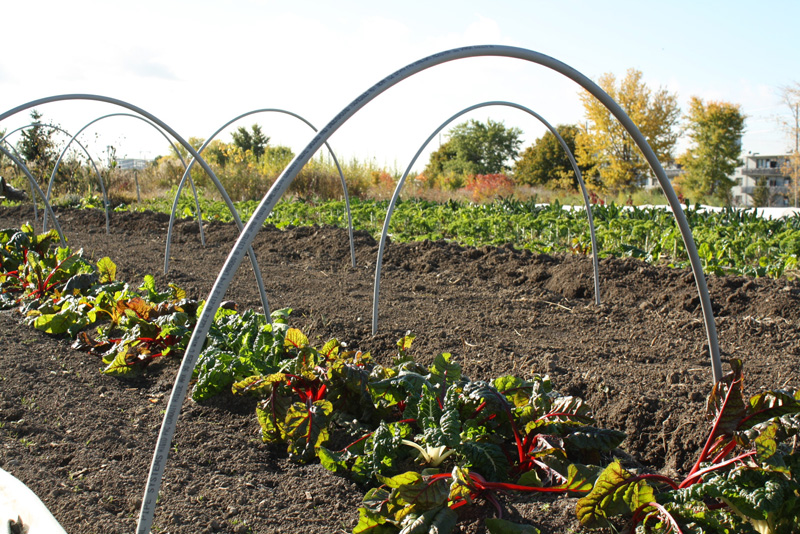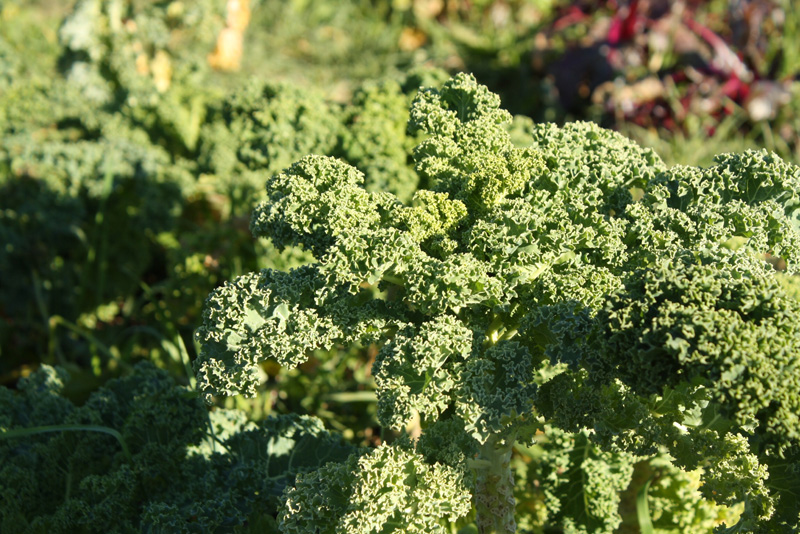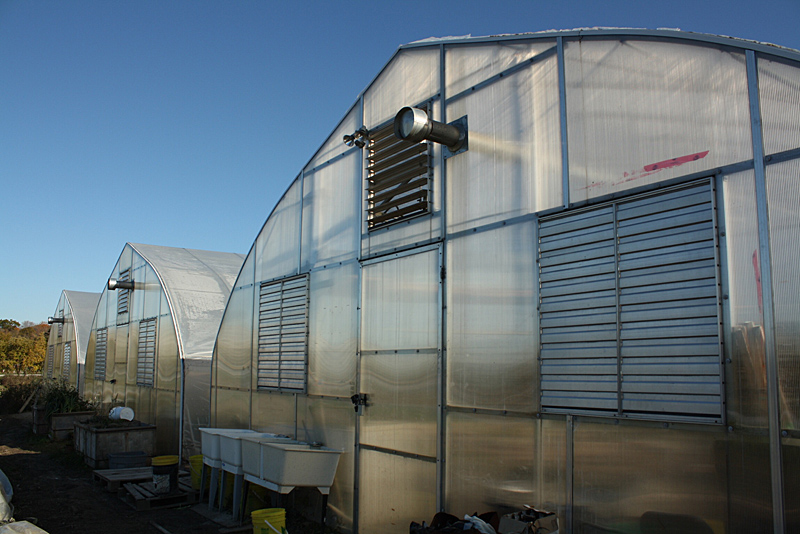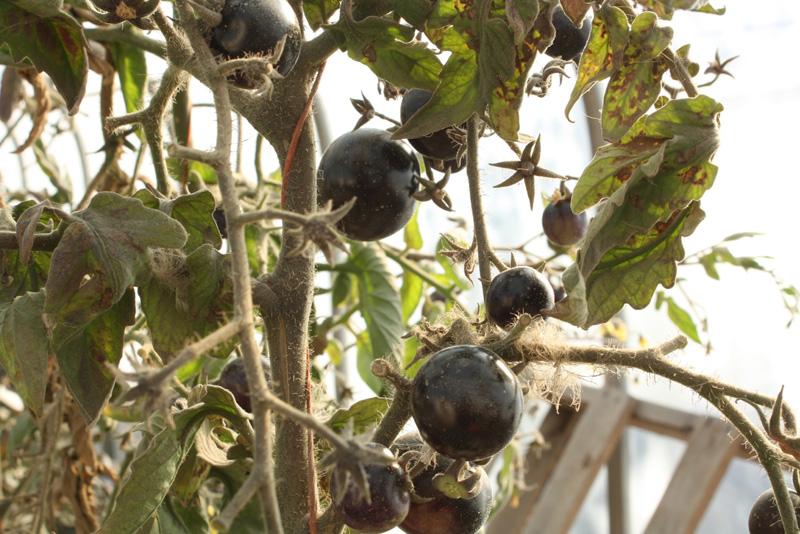Fresh City Farms: Urban Farming In Toronto
Fresh City is an urban farming and produce delivery project based in Toronto. I heard about the project a few months back, signed up for deliveries and took an intro to canning class. I was impressed. And the more I learned about FC, the more intrigued I became: about the story, about the philosophy, about the people behind the project.
And so, on a late October morning, I found myself face-to-face with Fresh City founder, Ran Goel. Ran was relaxed and casually nibbled kale as we talked — not so-much the New York City lawyer that I had read about. Standing only twenty feet from busy Keele Street, looking at a two acre crop, the juxtaposition was striking. I found myself asking this question: How on earth did you get here?
“I’m not sure what it was. I say this because, at the time and even now, it’s sort of a crazy shift if you think about it. But, honestly, it was just something that called to me.”
Crazy shift, to be sure, but there had to be more to the story. “I always knew that I didn’t want to practice law long-term; it was a means to pay off my law school debts and save up some money. So, the question was what next. I can’t say that this is what I had in mind when I first started thinking about what to do next.”
Ran had heard of urban farming efforts — small scale projects that were government or charity subsidized. He wondered if something like that could be morphed into a for-profit business model on a larger scale. He had doubts. “But it was something that kept calling to me, because – I’m a big win-win person, very conflict averse – it’s the kind of thing that’s just good all around.”
“In any event, the more I studied it, the more I thought we’ve gotta find a way to make this work.” This, of course, being a profitable urban farm. “And if you can find a model that works, you can scale it without having the constraints of the government giving you money or getting money from some foundation.
“For me, that was an intriguing part, trying to make this work. And when I say for-profit, this is not something you do to make a lot of money. It’s more something you do to make it economic and sustainable so it runs itself year-to-year as long as you’re managing it right.
“And that, for me, was huge. It has such beneficial impact in terms of just getting people out here – whether for tours, workshops, events – it changes a lot of peoples’ mind about how they think about food.”
That desire, to get people connected with food and with farmers, permeated Ran’s thoughts as he researched and built something tangible. Another aspect that was crucial? Making it urban.
“It’s very hard to do this if you’re based in a rural area, because there’s already that divide between city and country for a lot of people. There’s a big divide between city, country and farm on top of that. So, people might go to their cottages and have a little bit in common with these rural areas, but no one knows a farmer these days. This is a way to get people in touch with food, how it’s grown and with the people who grow it.”
Beyond making an impact on the mindset of consumers, Ran found that a Fresh City model could encourage less overall consumption and pollutant emission. “We just did a study running our greenhouse gas emissions and getting your produce from Fresh City rather than [a big box grocer] is 75% less greenhouse gas emissions in terms of the farm-to-table transportation.”
Another win-win situation? Fresh City’s model empowers the local economy. “There is a huge local multiplier, so for every buck you spend at Fresh City, almost $2.80 stays in the local economy. So, we’ve got a multiplier of 2.8 rather than the 1.5 you’d get [at a big-box grocer].”
Currently, Fresh City Farms delivers fresh produce boxes all over the city. But Ran has plans to expand, not only the business but the Fresh City mentality. “I just spoke at the city hall last week, in front of the Parks and Environment Committee. They were considering this urban farming action plan. And one of the first things I said was, ‘Listen, this is the easiest decision you guys have to make all year.’ Because this is good socially, it’s good environmentally, it’s good economically.”
As I listened to Ran speak, one thing became clear: the philosophy that motivated him to create Fresh City Farms touches all aspects of his business model. And that’s a business we can get behind.
Check out Fresh City Farms on FS Local
Fresh City Farms operate an urban farm in Toronto and deliver fresh food boxes to hundreds of customers weekly. Visit their website for more information and don’t forget to follow them on Twitter @FreshCityFarms.










